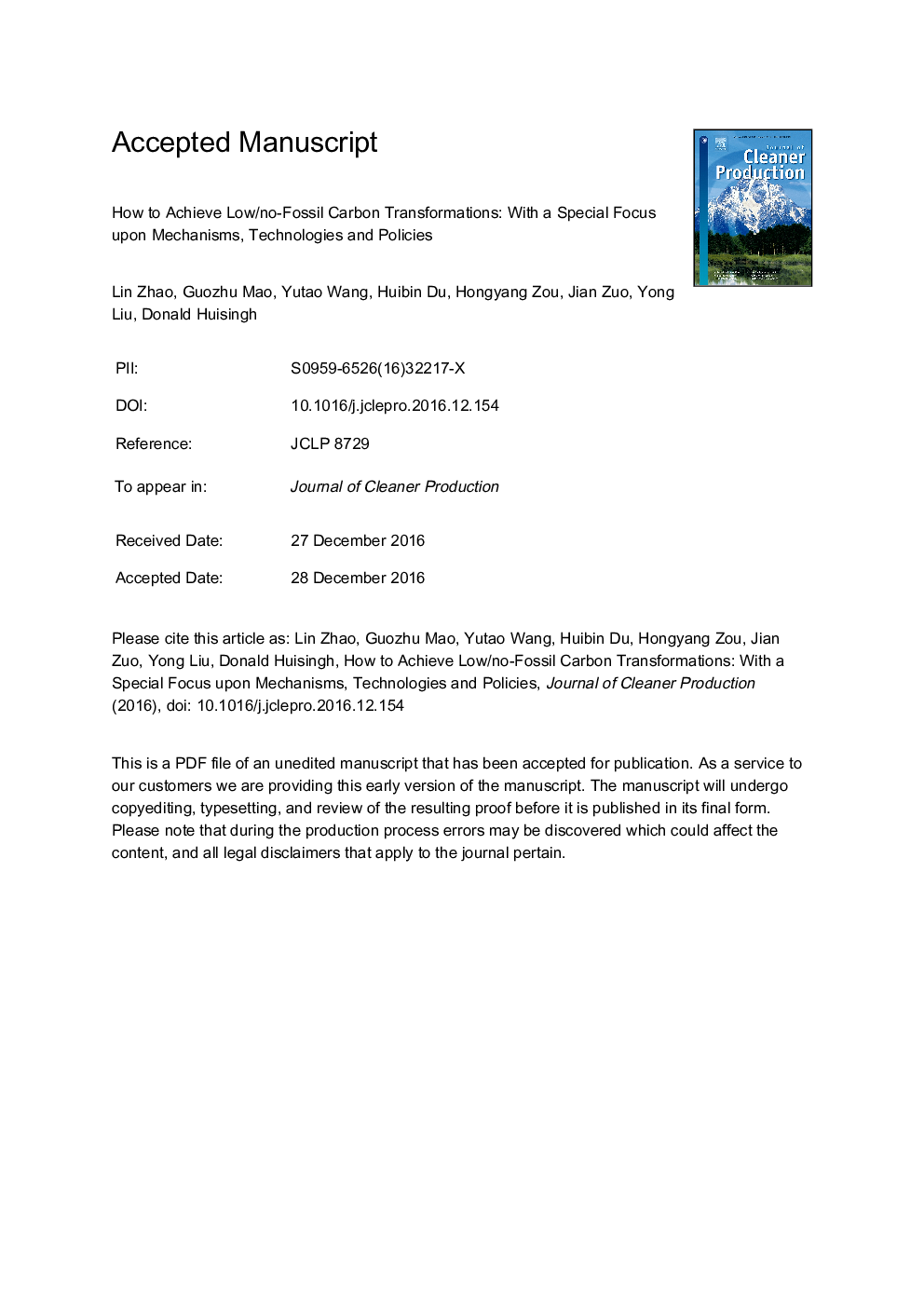| کد مقاله | کد نشریه | سال انتشار | مقاله انگلیسی | نسخه تمام متن |
|---|---|---|---|---|
| 5479543 | 1522091 | 2017 | 25 صفحه PDF | دانلود رایگان |
عنوان انگلیسی مقاله ISI
How to achieve low/no-fossil carbon transformations: With a special focus upon mechanisms, technologies and policies
ترجمه فارسی عنوان
چگونه برای رسیدن به تحولات کربن کم / بدون فسیلی: با تمرکز ویژه بر مکانیزم ها، فن آوری ها و سیاست ها
دانلود مقاله + سفارش ترجمه
دانلود مقاله ISI انگلیسی
رایگان برای ایرانیان
کلمات کلیدی
تغییرات کربن کم / بدون فسیلی، ساز و کارهای تبدیل، فن آوری کربن کم / بدون فسیلی، ارزیابی تحولات، تجزیه و تحلیل سیاست های سیستم کربن پایین / بدون فسیلی، مزایای زیست محیطی، اجتماعی و بهداشتی،
موضوعات مرتبط
مهندسی و علوم پایه
مهندسی انرژی
انرژی های تجدید پذیر، توسعه پایدار و محیط زیست
چکیده انگلیسی
Climate change, environmental problems and consequent ecological damages due to excessive consumption of resources and to the continuing human population growth of more than 80,000,000 net increase per year, have damaged and continue to accelerate the devastation of numerous ecosystems. These changes have brought significant harm to humans and are imposing high costs on societal maintenance and development. In that context, low/no-fossil carbon transformations and improved material's and energy efficiency are crucial elements for reconciling human activities with sustainable societal development, which is built upon vibrant and sustainable ecosystems. The urgently needed changes are bound to be difficult to make due to the perceived contradictions between low/no-fossil-carbon systems and sustainable and economically vibrant societies. This Special Volume (SV) is comprised of thirty-three articles, which mainly focus on investigations of low/no-fossil carbon transformations in countries, regions, industries and enterprises. Some authors provided insights of ways to proceed based upon new research and development (R&D), evaluations of specific low/no-fossil carbon technologies and lessons learned from policy simulations and analyses of potential post-fossil carbon societies. This SV introductory article contains an overview of the content of the articles divided into five topics: (a) low/no-fossil carbon transformations within industrial sectors, (b) regional planning and low/no-fossil carbon developments, (c) multi-regional, low/no-fossil carbon economies, (d) specific low-fossil carbon technologies, and (e) low/no-fossil carbon policy results. Given the extensive coverage of low/no-fossil carbon transformations, the papers on mechanisms and pathways are clearly the most important contributions of this SV. The researchers focused broadly on ways to address two objectives: (a) To characterize the main factors catalyzing high-fossil carbon development and (b) To accelerate the transition to low/no fossil carbon societies. Some authors focused upon new, low/no-fossil carbon development and planning in different countries and regions, while others focused upon ways to make changes within energy-intensive industries. Additionally, some authors reported on progress in the evaluation of the effectiveness of specific low/no-fossil-carbon technologies and in the design and implementation of low/no-fossil carbon policies. The findings and recommendations of the authors are positive and encouraging. However, it is clear, that there are many additional research, policy and educational challenges, which must be solved, to establish and support systems to guide and to monitor the transformations to sustainable, equitable, livable, low/post-fossil carbon societies. Much work remains but the wisdom in the articles in this SV will help societies make the needed transitions.
ناشر
Database: Elsevier - ScienceDirect (ساینس دایرکت)
Journal: Journal of Cleaner Production - Volume 163, 1 October 2017, Pages 15-23
Journal: Journal of Cleaner Production - Volume 163, 1 October 2017, Pages 15-23
نویسندگان
Lin Zhao, Guozhu Mao, Yutao Wang, Huibin Du, Hongyang Zou, Jian Zuo, Yong Liu, Donald Huisingh,
